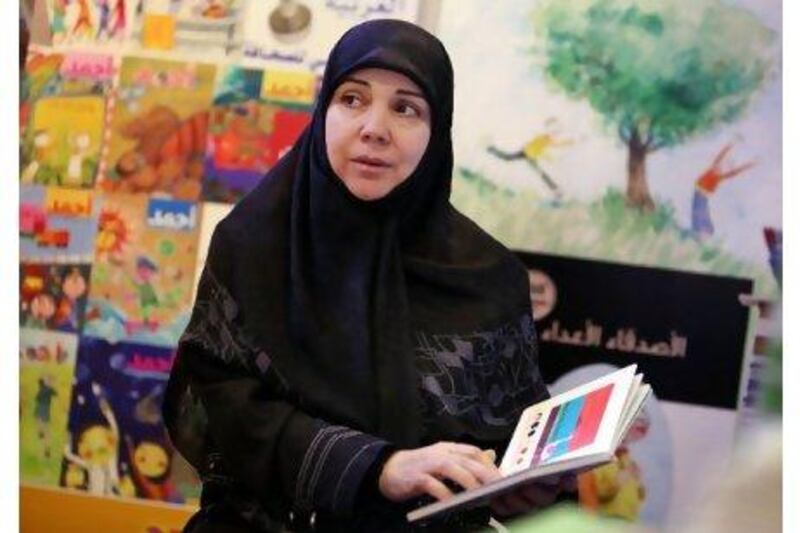SHARJAH // Original Arabic literature is the key to maintaining cultural identity in the Middle East, says a royal advocate for children's books.
Sheikha Bodour bint Sultan Al Qasimi, daughter of the Ruler of Sharjah, is the founder of a Dh1 million literary prize.
"The Arabic language is a key element of the national Arab identity and is central to raising children who are proud of their Arab roots," Sheikha Bodour said.
"Reading helps develop awareness among children not only of their own language, but also of their culture and their heritage. In addition, books highlight important issues that children face while growing up."
In 2009, she established the Etisalat Prize for Arabic Children's Literature, one of the most valuable book awards in the world, to raise standards and improve quality in Middle East publishing.
Nominated books must be original Arabic-language works, rather than translated, and their content must conform to the values, traditions and customs of Arab communities.
Half of the Dh1m prize money goes to the publisher of the winning book and the rest is shared by the author and illustrator.
The scheme is run by the UAE section of the International Board on Books for Young People, of which Sheikha Bodour is president.
"Only home-grown books can address the issues faced by Arab children accurately and fairly, as they take place in a setting that they understand and can identify with," she said
Isobel Abulhoul, the director of the annual Emirates Airline Festival of Literature in Dubai, said an absence of Arabic literature would leave Arab children searching for identity.
"One of the most important issues in today's world for everyone is identity, and one of the key elements of identity has to be your mother tongue," she said. "Without having home-grown books for children in their mother tongue they will feel alienated and lost.
"People can write books about this part of the world but unless they are themselves native speakers of Arabic, unless it is a region where they have grown up and imbibed the culture and history through the air they breathe, they don't actually get it, they don't understand it.
"That is why the Etisalat Prize is hugely important."
Dr Abdulla Al Karam, the chairman of the board of directors and director general of Dubai's Knowledge and Human Development Authority, said: "There is strong evidence that no matter what language is used, a love of reading improves a child's performance in a whole range of subjects.
"Children need access to books they want to read."
Ten books have been nominated for this year's prize, and the winner will be announced at the 30th Sharjah International Book Fair next month.
"This year's long list covers a range of diverse topics, some of which are friendship, love, being kind to everyone including family, being respectful towards parents and elders, and also raising our voice in support of social causes," Sheikha Bodour said.
"I think these themes reflect the changing times as well as a growing confidence among Arab children's authors."
Last year's prize was awarded to the author and illustrator Walid Taher, and the publisher Dar El Shorouk of Egypt for Al Noqta Al Sawda (The Black Dot).
The 2009 prize went to Nabiha Muhaidali and her publisher Dar Al Hadaeq of Lebanon for a series of books called Ana Aheb (I Love).
Ms Muhaidali said the award gave her a new sense of responsibility to provide quality books for her readers.
"I now consider every book as a project for an award," she said, speaking on the sidelines of last year's fair. "We have to be careful with every element as a publisher.
"Awards are passports; they take you forward but you need to be aware of the example you're creating."






